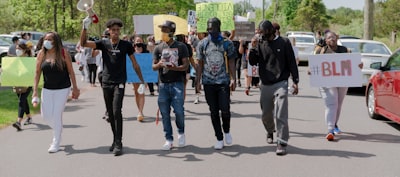The case of a Palestinian student suing her Michigan school over a teacher’s hostile response to her opting out of the Pledge of Allegiance spotlights a critical battleground for students’ rights and the American promise of free expression. The incident transcends local boundaries, pointing to deep-seated tensions where patriotism, identity, and constitutional rights collide in classrooms across the nation.
At the Core: A Clash of Rights and Expectations
While the Supreme Court’s 1943 ruling (West Virginia State Board of Education v. Barnette) confirmed that students cannot be compelled to salute the flag or recite the Pledge, real-world frictions persist. For many educators and communities, the Pledge serves as a vital ritual—a signal of unity, respect, and social cohesion. Yet, for some students, especially those from marginalized or international backgrounds, the act can symbolize exclusion, protest, or personal convictions.
| Stakeholder | Perspective | Pros | Cons |
|---|---|---|---|
| Student | Asserts right to dissent for personal/political reasons | Affirms constitutional freedoms | Risks alienation, punitive backlash |
| Teacher/School | Views standing as emblem of shared values | Promotes unity, tradition | Risks stifling diversity and dissent |
| Broader Society | Sees schools as civic incubators | Can reinforce collective identity | May normalize intolerance of differences |
What’s at Stake—And Why It Matters
This isn’t merely about one student or teacher’s judgment—it’s a test of whether American schools are genuinely pluralistic spaces. The relevant players include the student, likely representing a broader cohort of Muslim, Arab, or non-Christian students facing similar dilemmas; the teacher, possibly echoing long-held community norms; and an institution caught between upholding rights and maintaining decorum.
Complicating matters, since 9/11 and especially after recent Middle East conflicts, scrutiny of visible Muslim or Arab American students who assert their rights has resurged, underscoring a persistent double standard in how dissent—and patriotism—are defined. Schools have become microcosms of national debates, bearing out the frictions of inclusion.
Looking Forward: Beyond the Obvious
The true question isn’t whether the student can lawfully sit, but whether our educational culture is willing to engage discomfort for the sake of liberty. Embracing difference in symbolic acts like the Pledge can be a powerful, everyday civics lesson—arguably more important than the ritual itself.
This case serves as a timely reminder: Rights must be robustly protected to be meaningful, especially for those at the margins. Handling such flashpoints with empathy, context, and legal fidelity is not only a legal requirement—it’s an opportunity to teach the values America claims to uphold.
This article was inspired by the headline: 'Palestinian student sues Michigan school over teacher’s reaction to her refusal to stand for Pledge'.

Comments
No comments yet. Be the first to comment!